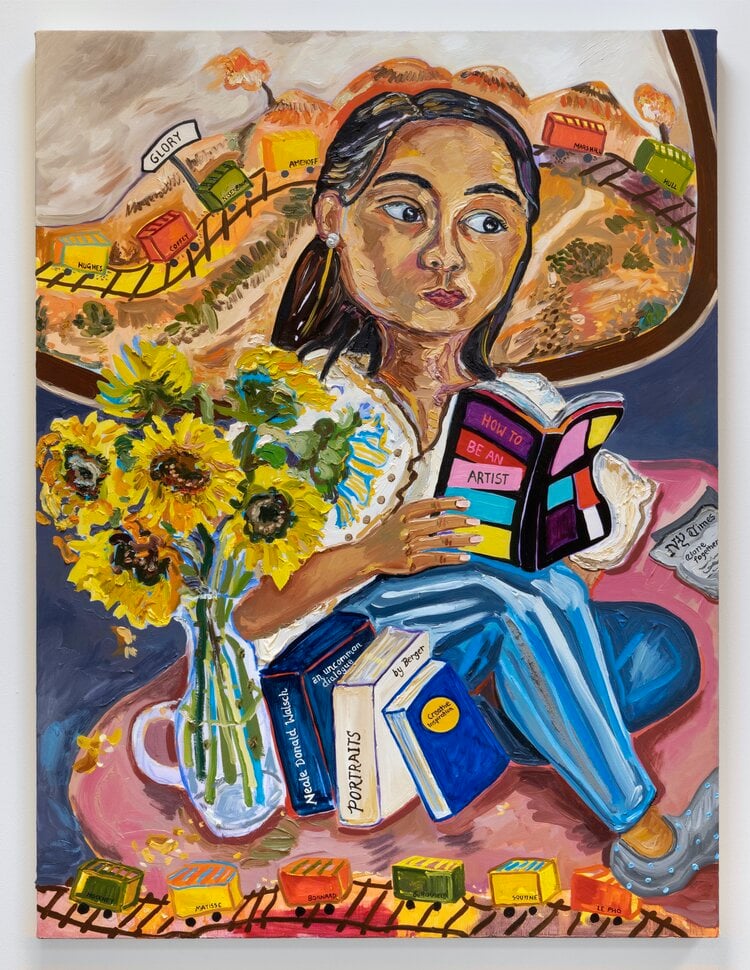On View
Susan Chen’s Richly Layered Portraits of Asian Americans Make Their New York Gallery Debut—See Images Here
The show marks the artist's debut at Meredith Rosen Gallery.

The show marks the artist's debut at Meredith Rosen Gallery.

Caroline Goldstein

As galleries and art institutions around the world begin to reopen, we are spotlighting individual shows—online and IRL—that are worth your attention.
What the gallery says: “Chen’s work is a navigation of identity and belonging. Her practice embodies these themes both internally and externally: the painting process prompts inward reflection while the paintings themselves provide outward representation.
Chen paints to answer questions about her own identity and to address the lack of Asian Americans in Western portraiture. When painting Asian Americans, Chen is at once powerful and vulnerable. As an artist, she can grant visibility to her community through her work. As an Asian American, she must confront her own fears and desires in every portrait. ‘On Longing’ represents her embrace of this dichotomy.”
Why it’s worth a look: The layers of colors and textures in Chen’s portraits, not to mention the intricately detailed backgrounds her subjects populate, point to someone enamored with the practice of painting. Thanks to quarantine, Chen’s work in this show feels single-minded and true to its setting. You can hear the commotion from the street scenes and feel the warmth from a cozy-bordering-on-claustrophobic living room. In the painting Street Cars of Desire, the artist herself appears reading Jerry Saltz’s book How to Be an Artist as train cars chug around the canvas bearing the names of painters she admires both living and dead: Soutine, Matisse, Bonnard, Hockney, Susanna Coffey, Aliza Nisenbaum.
As a first-generation immigrant, Chen found her subjects through chat forums for other Asian Americans, and as described by the gallery, invited some she encountered to be her models. Maybe that’s the reason why some of the characters in her work appear uncomfortable, but more likely it is the disquietude of being “other.” In the work About Face, a quartet of girls stand awkwardly in front of a university building, one of them holding a book with the title Racial Melancholia.
What it looks like: